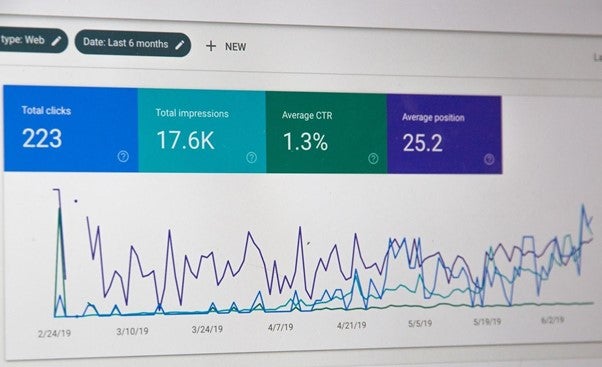
The year 2020 forced many of us to get web-based, and it was not a thing to come naturally. In fact, many employees and leaders alike had a difficult time with the transition.
Employees had to learn to stay organized, set their own schedules and manage their projects from home. Leaders had to learn to lead from a distance, as well as place trust in their remote workers.
However, the basics of any business had remained the same, and only the tools had changed. So, let’s go through the six best marketing strategies for a remote team.
-
Search Engine Optimization (SEO)
Search Engine Optimization, mostly known as SEO in the marketing world, is acquiring high positions in search engine results. We put it in the first place because it’s considered a must-have for any company that wants to market online.
This marketing tactic’s philosophy is relatively simple: the more visible your website is, the more clicks it gets. Consequently, the more visitors you have, the more sales, customers, and profit you get.
Obviously, every company has its niche and target market. To get the relevant audience, you optimize the website for specific keywords, attracting only the right people.
Why is it the right choice?
- Visibility in search results. You may have the best shop ever, but if it is in the back alley in the middle of nowhere, no one will find it.
- Long-term results. After initial recognition, the more popular your site becomes, the higher it will appear. Popularity creates more popularity.
- Not expensive in the long-term perspective. Search robots don’t need a brand new ad every week. Once you’ve optimized your page, you’ll only need to update it.
Some Cons to Consider
- Long-term game. You won’t get immediate results with SEO. Usually, it takes about 3-6 months to see the first returns of your work — but on the other side, the benefits you get may also last long.
- Investment first. Firstly, you have to spend some money on content creation, promotion and website optimization, and the results will come in several months. So, it might seem a bit expensive. But after it starts working, the proportion changes over time, and the cost per lead decreases significantly.
- Consistency. Search algorithms are changing and continually updating, just as the web itself. So, regular maintenance and SEO monitoring is required if you want to improve your positions and not lose the results achieved.
-
Social Media Marketing (SMM)
Well, from the name itself, we can get a clear understanding that it’s a kind of marketing that is done with the use of social media. So, you use various social media platforms to reach your target audience. It involves such techniques as content creation, content distribution, targeting and much more.
Why is it the right choice?
- Cheap and easy to start. Luckily, we can still register on most social media for free. So getting the account and participation in different groups will not require additional expenses.
- Easy to target the audience. People hang out only in the places which match their interests. So, the moment you discover groups, pages with the relevant audience, you are halfway through.
- High conversion rates. That’s the effect of the previous point. If you’re in the right place, then obviously the conversion rates will be high as you don’t target the cold audience.
Some Cons to Consider
- Time-consuming technique. Like SEO, SMM requires consistency, as the algorithms work in the way that the more active you are, the more attention your page gets.
- Vulnerable reputation. Society makes buzz that may be hard to control. Any negative comment may attract unpredictable loads of attention.
- Security breaches. The higher your presence (and therefore integration) in the social media platforms, the more appealing for hackers you are. They might try to access your bills via social media profile, etc.
Read more on reputation management software
-
Content Marketing
Content marketing is an approach when an organization creates valuable and informative content to attract the relevant audience and converts them into sales.
Why is it the right choice?
- Trustable reputation. We can’t classify content marketing as direct marketing as you don’t sell directly. On the opposite, your intent is to educate and help your audience so this way the audience begins to trust you.
- Long-term results. Content marketing is a brother of SEO, and it’s an integral part of it. So, the first good thing is upgrading your ranking in search engines. Secondly, you gain trust and loyalty among the target audience that is a huge advantage for your future.
- Possibility to start with a small budget. If you get enough time for content creation, you can start for free to save up on capital, as the main expense here is content generation.
Some Cons to Consider
- Long-term game. It can be considered both as a minus and a plus. It takes time to see the first results of your work, but once you get them, they will last for a decent period.
- Considerable investments are required. The more content marketing you do, the more money might be required. In the very beginning, you can deal with content production by yourself, and the primary resource is your time. At some point, you will need to hire professionals (copywriters, designers) to produce content of high quality, which will cost you a penny.
- Time-consuming. As a consequence, it requires the most valuable resource — your or your employees’ time to produce content.
-
Pay Per Click (PPC) Advertising
It’s a marketing model where you advertise your website on other platforms, mostly in the form of banners or short ads, and pay per the number of clicks you get. PPC doesn’t fall into the group of organic marketing techniques, as you “buy” visitors.
Why is it the right choice?
- Quick results. Finally, we can say that there are ways for you to get the results in almost no time. Once the banner is placed, you will get immediate visitors to your website — obviously, in case of a good placement on the right platform.
- Targeted advertising. You can pick up the website where your target audience hangs out, and you’ll hit the nail on the head.
- It’s really easy to measure, and if you are not satisfied with the results, you can improve the campaigns via changing the image, message, or maybe platform.
Some Cons to Consider
- Pay for each click — and competitors may intrude. You never know who might click on your ads, and sometimes competitors may perform actions to “click them out.”
- Creative assets are needed. You have to invest money and inspiration to create effective PPC ads, as the competition is pretty high. Also, users see a lot of PPCs every day, and they tend to ignore them. So, you need to stand out.
- It’s not cheap in the long run. Despite the high measurability and perceivably low price of clicks in many niches, if you compare the cost of PPC with SEO and content marketing in the perspective of one or two years, the customer acquisition cost will be significantly higher in most cases.
-
Cost Per Action (CPA) Marketing
CPA is similar to PPC, but you pay not per click, but for registration, subscription, purchase or another target action you need.
Why is it a good choice?
- Low risks. You pay for an active user rather than a non-obligatory clicking.
- Quick results. Absolutely the same as with PPC, you can observe the results once you place the right advertisement.
- You can start with a small budget and reinvest. If the method works, you can elevate payment for a more significant reach.
Some Cons to Consider
- You don’t have direct control over the process. It is not easy to plan sales and profits because the result is in the other party’s hands.
- Links may come from spammy websites that damage your SEO. You never know which sources a partner will choose to promote your product and get the commission, and some of them may harm your website’s reputation and performance.
- Finding a decent provider might be challenging. A lot of fraud is engaged in this field, and even honest partners may just fail to perform.
-
Email Marketing
Here, you promote your products or services via sending emails. This approach is about direct communication between the brand and its existing or potential customers. And the good news is that it can be successful for any niche, whether you’re promoting porcelain table lamps or million-dollar life insurance. Anything goes!
Why is it the right choice?
- No need for significant investments. In the beginning, it requires only your time of work to create compelling content. After it becomes your regular marketing strategy, you’ll need more people to create texts and visuals, analyze and improve the campaigns.
- Quick results. It’s a direct way of communication with your target audience, so you may receive feedback minutes after sending an email.
- Possibility for high conversion rates. In some cases, you reach people who have already bought or are interested in buying from you, so it may bring high conversion rates if done correctly.
Some Cons to Consider
- Requires effort to gather subscribers. If we’re not speaking about spam where you just buy an email base and send messages to people who didn’t agree to communicate, you need to pay time and often money to raise interest and make them subscribe.
- Requires skills and creativity. It’s the same as with content creation: you can’t just bother your target audience by advertising your company every day. Instead, you should find a creative approach to grab their attention.
- Your emails could be marked as spam. Some of your recipients may not receive your emails because of spam filters, others may mark your emails as spam if you send too many ads.
Conclusion
Depending on your business’ type and size, you may choose one or several marketing strategies to try out. They may work differently for various niches and products, and the best approach to form your own effective remote marketing strategy is to test, measure and scale the best performers.
12899 Views



















